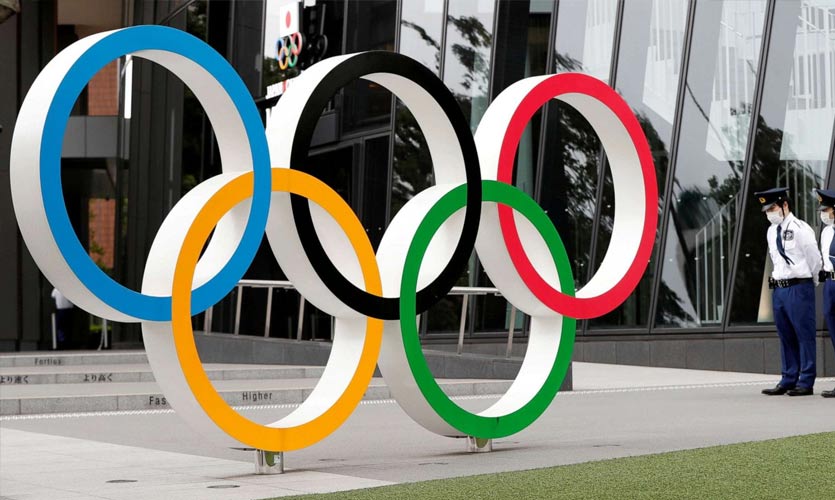The Indian Olympic Association (IOA) has criticised the Japanese government’s harsh regulations placed on athletes from several COVID-affected countries for the Tokyo Games that begin next month.
Tokyo 2020 organisers, on Monday, announced that further precautions would be taken to limit infection risks from many nations that have seen “significant impact from variants” of COVID-19, including India.
Protocols For Athletes
According to the revised “playbook” of anti-virus measures issued on April 28, all players were required to take two COVID-19 tests before travelling to Japan.
The vaccination of athletes is optional since accessibility and priority vary from country to country, and it supposedly would not provide 100 percent protection, according to authorities.
The initial version of the playbook issued in February 2021 said that players will be evaluated every four days at the least.
Athletes are essentially compelled to live in a bubble within the athletes’ village. They have been prohibited from attending events as spectators and have been advised to avoid taking public transportation. They must wear masks and avoid direct contact. Athletes’ protocols include testing, tracing, and isolating. They have been instructed to keep their bodies clean at all times.
It is also forbidden to socialise or eat in groups. All athletes have been instructed to leave Japan within 48 hours of their last olympic tournament.
What Led To The Outrage
The measures announced include daily testing of athletes for a week before they leave for Japan and “no interaction with other teams for three days after they arrive” in the country.
The IOA said that the regulations would result in participants missing three important training days.
“Athletes are allowed to arrive in the Games village only five days before their event,” IOA president Narinder Batra and secretary Rajeev Mehta said in a joint statement released on Saturday.
“This is the time the athletes need to be moving towards their mode to peak… highly unfair for Indian athletes, who have worked hard for five years, to be discriminated against just five days before the Olympics,” read the statement.
According to the sports administration, 11 nations, including India, Pakistan, and the United Kingdom, will be affected.
“Where can athletes train… practice/training facilities are never unoccupied, and athletes and officials from different NOCs are always there,” inquired the statement.
“For participants from areas such as India that have seen significant impact from variants, it is necessary that they follow more stringent rules than those outlined in the Playbook, and are similar to the existing border control measures,” said the Tokyo 2020 organisers, as per the AFP. However, the organisers did not specify whether athletes from the impacted nations would be permitted to practice during the three days following their arrival.
Last week, the IOA president assured AFP that Indian players will be completely vaccinated before the games begin on July 23.
In recent weeks, India has relaxed certain lockdown restrictions as it continues to recover from a devastating rise in infections and fatalities during the second wave in April and May.
In late May, the International Olympic Committee said that six nations, which include the Maldives, Bangladesh, India, Nepal, Pakistan, and Sri Lanka, had agreed to completely vaccinate their delegates, and perform extra testing.
Olympics During COVID
The Tokyo 2020 Summer Olympics, which were initially slated for July-August 2020, were postponed owing to the global pandemic. Even though foreign spectators are prohibited, about 11,000 athletes and more than 50,000 people are scheduled to attend the major event.
The citizens and scientists of Japan have voiced worry that insufficient precautions might result in a COVID-19 superinfection spreader scenario.
Read more: What’s The State Of Mental Health In The Indian Sporting World?
Norms For Spectators
The spectator limit for the Tokyo Games has been set at 50 percent of the venue capacity, with a maximum allowance of 10,000 people.
Japanese citizens will be permitted to attend the Tokyo Olympic Games, but foreign spectators will be denied entrance.
The recommendations by the organisers stipulate that masks must be worn at all times during events, that speaking in a loud voice or screaming is forbidden, that overcrowding should be prevented, and that people should depart venues in a staggered fashion.
Spectators will be asked to travel directly to and from sites and take all required measures when travelling between prefectures.
Students in the schools’ spectator program and their supervisors will not be included in these limitations and will be treated individually because they are not spectators.










